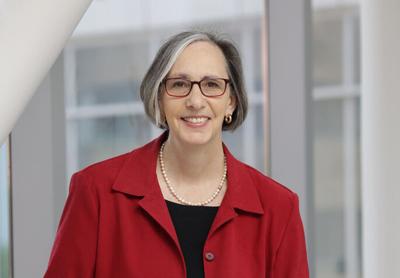Dr. W. Kimryn Rathmell earned her stripes while working at Vanderbilt University Medical Center. During her tenure as physician-in-chief and chair of the department of medicine, she was tapped to lead the National Cancer Institute in November.
In her new role, she will play an integral part in the White House’s Cancer Moonshot initiatives.
A statement from President Joe Biden at the time said, “Dr. Rathmell is the talented and visionary leader the National Cancer Institute needs to drive us toward ending cancer as we know it.”
A kidney cancer expert, Rathmell also previously held leadership roles in the National Institute of Health-led Cancer Genome Atlas, was part of the Department of Defense Kidney Cancer Research Program and served on the NCI board before taking the top spot.
With her husband a professor at Vanderbilt University, Rathmell often makes the trek from Washington, D.C. to Nashville on weekends. She sat down with the Post to discuss her new role.
Before you moved to NCI, your research focus has been renal cell carcinoma. What have been some of the findings in that space?
My interest in renal cell carcinoma started when I was training before I was a faculty member. I was working in a laboratory that was right at the cutting edge of fascinating biology that it turned out was very close to one type of renal cell carcinoma called clear cell renal carcinoma. It was a discovery that later won the Nobel Prize. I was part of that research.
At the same time, I was an oncologist and I was seeing patients with kidney cancer, and I was seeing that there was no effective therapy. There are now many treatments for the most common type: clear cell renal cell carcinoma. Those patients can be cured in the metastatic setting sometimes and this marriage of science to clinical outcome — it's a beautiful story arc.
What does being a physician scientist mean to you?
I have loved being a physician scientist, and I'm a big advocate for people to think about this career. Even people who get both degrees get an M.D. and a PhD, sometimes are told [they] have to pick one [and] can't do both.
My sense is that actually there's some power in the middle and knowing trends in the clinic, having a connection to patients, the patient experience, caregiver experience and the rest of the health care system.
What are some exciting things you’ll be working on at NCI?
I’m really excited about Cancer Moonshot because it signals that there’s significant White House support for cancer. Also, the Moonshot is an all-government approach. It means that we need to be talking to everybody about how we make a big difference for cancer.
Things I'm excited about the Cancer Moonshot include really creative ways to do clinical investigation, and to engage more people in clinical trials, to put things literally into the hands of patients.
There's a study that we're just launching that I'm really excited about. It’s called the SHIP trial. It’s looking at how we can do HPV testing in women by letting them do the testing themselves, overcoming some of the barriers of normal testing for cervical cancer. It’s a really creative way to think about how to do clinical trials.
I had a meeting with the head of NASA. They’re very excited about cancer and wanted to talk about where we see some of those contributions overlapping, and thinking about how we utilize the space station to make big advances for cancer.
It’s a crazy big concept and it’s really fun to think about. I’ve never been as excited about what we can do in the cancer arena. And it’s not just because I’m sitting in this chair, it’s because there are so many opportunities.
What role do you see Nashville playing in the Cancer Moonshot?
It’s all-government but it’s also all of the country involved in making a difference for the moonshot. I know [VUMC] well and they are involved in multiple components of work that we’re doing to advance cancer, particularly in the arena of precision oncology. That’s really Vanderbilt’s sweet spot, but in other arenas as well. Everybody has a role to play. That’s not a statement I say flippantly. I literally think everyone has a role, especially researchers in NCI-designated comprehensive cancer centers because they’ve been in that work.
I really did love my time at Vanderbilt and in Nashville, so one thing that I’m trying to do is bring a little bit of Vanderbilt and Nashville [to Washington, D.C.]. It’s a really tremendous place with a lot of talented people who think creatively. That’s one thing I love about Nashville — being around creative people, like singer-songwriters and people who work in the music industry as well as the health care and science sector. People are willing to think collaboratively and openly and with an incredible sense of humility, so I’m trying to bring that to the rest of the cancer community as well.


